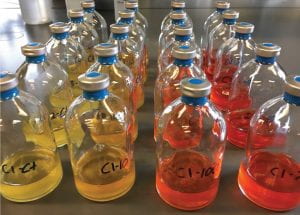In the human gut, good bacteria make great neighbors.
A new Northwestern University study found that specific types of gut bacteria can protect other good bacteria from cancer treatments — mitigating harmful, drug-induced changes to the gut microbiome. By metabolizing chemotherapy drugs, the protective bacteria could temper short- and long-term side effects of treatment.
Eventually, the research could potentially lead to new dietary supplements, probiotics or engineered therapeutics to help boost cancer patients’ gut health. Because chemotherapy-related microbiome changes in children are linked to health complications later in life — including obesity, asthma and diabetes — discovering new strategies for protecting the gut is particularly important for pediatric cancer patients.
“We were really inspired by bioremediation, which uses microbes to clean up polluted environments,” said Northwestern’s Erica Hartmann, the study’s senior author. “Usually bioremediation applies to groundwater or soil, but, here, we have applied it to the gut. We know that certain bacteria can breakdown toxic cancer treatments. We wondered if, by breaking down drugs, these bacteria could protect the microbes around them. Our study shows the answer is ‘yes.’ If some bacteria can break down toxins fast enough, that provides a protective effect for the microbial community.”
You can read the full paper here.
This story was originally posted on Northwestern Now.

